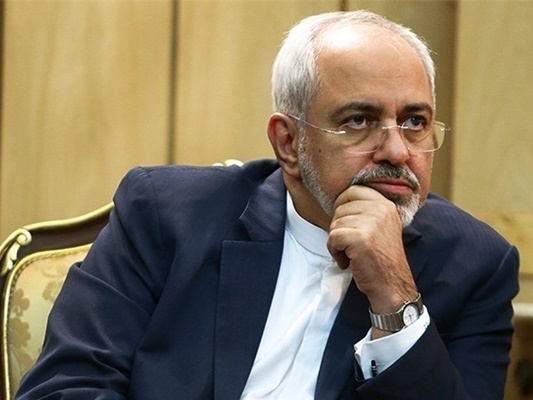Speaking in an exclusive interview with Al-Araby TV on Tuesday, whose full version will be aired on Wednesday, Zarif pointed to the ongoing tension in the Middle East, and said “everything is possible” in such a tense atmosphere where the US is waging an economic war on Iran through its unilateral sanctions.
“There is no difference between military and economic war,” he said. “In the circumstances of tension, everything is possible and the region is the biggest victim.”
However, he added, Iran will never allow the US to impose a unilateral war on the Iranian nation, which will inevitably harm everyone, as “war is war”.
Tensions between Washington and Tehran have been rising since President Donald Trump withdrew the US from a 2015 international nuclear deal and imposed unilateral economic sanctions against Iran, mainly targeting its energy dealings on the global market.
In early May, the Trump administration beefed up the US’ military presence in the Persian Gulf, citing alleged and unspecified threats posed by the Islamic Republic to American troops and interests.
The US’ recent deployment of an aircraft carrier, B-52 bombers and Patriot missiles to the Middle East has raised fears that the Trump administration was contemplating military aggression against Iran.
Iran has insisted that it will not initiate any conflict, but will firmly defend the country against any act of aggression.
UAE Trying to Become New Israel
Zarif also lashed out at certain regional countries for their excessive weapons imports, saying, “Three countries in the region believe they can maintain their security through their relations with the United States,” he added.
However, he added, they are wrong to think they can import their security from America because these weapons will be used to achieve the goals of Israel.
“The United Arab Emirates is spending billions of dollars on armaments and wants to be a second Israel in the region.”
Studies show the UAE has increased its arms imports by 63% between 2012 and 2016. Its military expenditures are projected to grow to $31.8 billion by 2021 from $23.6 billion in 2016, according to SIPRI.
The country has led an increasingly interventionist foreign policy in hot spots like Libya, Syria and, most recently, Yemen.
